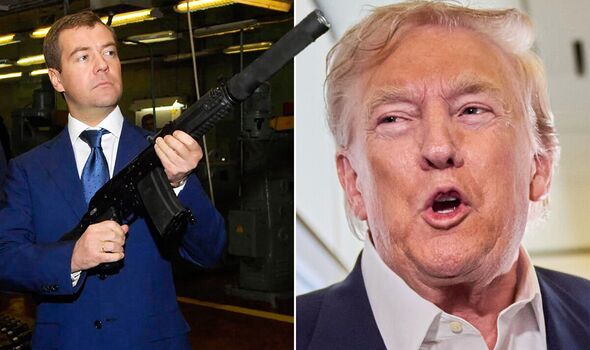Recent exchanges between prominent international figures have ignited a fresh wave of speculation regarding the delicate balance of global power dynamics. A pointed message from a former United States President directed at a high-ranking official from a significant global power has underscored rising sensitivities in international discourse. This development signals a period of heightened caution and strategic maneuvering on the world stage.
The former US leader, known for his unconventional diplomatic approach, issued a stark, three-word directive via social media, advising the foreign dignitary to “watch his words.” This assertive communication followed an earlier public statement from the foreign official, who cautioned against any perceived ultimatums, framing them as a direct challenge to stability and a potential catalyst for broader conflict.
The foreign official’s initial pronouncement had alluded to historical precedents, suggesting that any forceful demands from the former US President would be interpreted as an act of aggression, potentially escalating already fragile international conditions. This veiled warning also included a comparison to another American political figure, urging the former President to avoid similar pitfalls in his foreign policy approach.
However, the response from the American side was immediate and forceful. The former President vehemently rejected the advisory, reiterating his firm stance and admonishing the foreign official to exercise greater discretion in his public remarks. He characterized the foreign official’s statements as venturing into “very dangerous territory,” reinforcing the high stakes involved in their public dialogue.
This latest verbal volley unfolds against a backdrop of ongoing diplomatic efforts by the former US President. He recently announced plans to accelerate a crucial timeline for a significant international accord, aiming to achieve a resolution within a condensed period of ten to twelve days. This expedited deadline reflects a desire to inject urgency into complex geopolitical negotiations.
When questioned by reporters about the rationale behind this accelerated schedule, the former President emphasized the imperative of swift action, stating there was “no reason to wait” for a resolution. This declaration highlights a strategic shift towards more decisive engagement in ongoing international deliberations, signaling a move away from prolonged negotiations.
The underlying tensions between the global powers have been further exacerbated by economic considerations. The foreign official’s initial warning to the former US President also coincided with the United States’ threat of significant economic penalties should a critical international agreement not be reached. This intertwining of political rhetoric and economic leverage adds another layer of complexity to the unfolding scenario.
The former US President’s foreign policy platform, established upon assuming office, has consistently maintained that certain international conflicts could have been avoided had his administration been in power earlier. He has consistently pledged to bring about swift resolutions to regional disputes, although progress on some of these commitments has faced considerable challenges.
During recent high-level discussions aimed at fostering peace between various factions, the former US President has openly acknowledged the uncooperative stance of certain international counterparts. This candor underscores a more pragmatic and assertive approach to diplomacy, indicating a willingness to publicly address resistance encountered during sensitive negotiations.





Leave a Reply